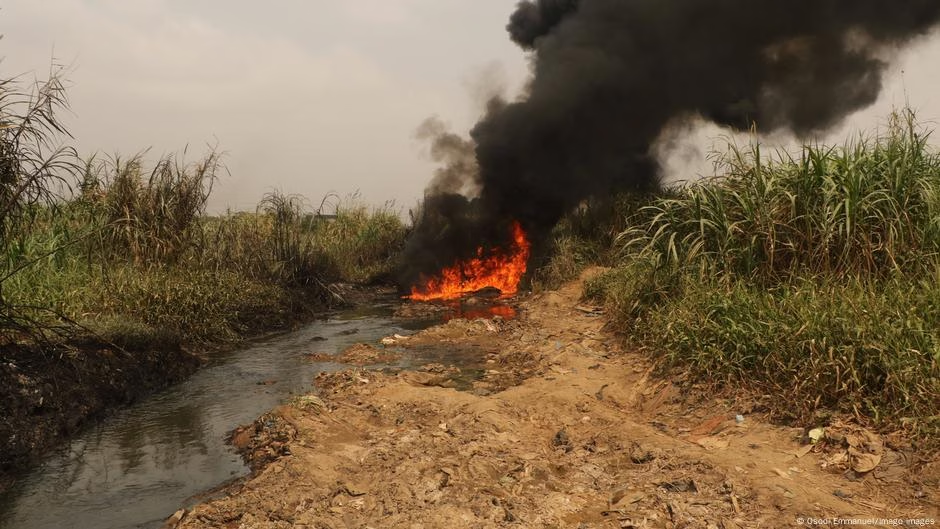A portion of the Trans-Niger Pipeline, one of Nigeria’s largest pipelines, has exploded, according to media reports on Tuesday.
The pipeline, essential for transporting oil in the Niger Delta, carries over 450,000 barrels of oil per day, predominantly to the Bonny Terminal in the federal state of Rivers.
Though the exact reason for the explosion remains unknown, local media speculate it could be related to threats from militant groups to damage oil production facilities.
Nigeria’s Arise TV channel reported that the Shell-operated pipeline has often been targeted by militants and saboteurs, leading to significant financial losses.
Additionally, concerns have been raised by locals regarding the potential economic and environmental consequences of the explosion.
Understanding Nigeria’s Oil Industry
Nigeria ranks among the world’s top five oil producers.
Since oil was discovered in the mid-1900s, Nigeria’s economy has largely relied on the oil industry, which contributes nearly 6% to the country’s GDP and over 90% of its export value. However, the wealth generated by the industry is distributed highly unevenly.
The impact of the Trans-Niger Pipeline explosion on the industry remains unclear.
In recent years, regional leaders have demanded a larger share of oil revenue from the federal government. The importance of oil has led militant groups in the past to threaten oil production unless their demands are met.
Despite being one of the world’s most oil-rich countries, Nigerian consumers currently face petroleum shortages, as most refined oil is exported.
Last week, the government prohibited large fuel trucks following a series of tanker explosions that have caused hundreds of deaths in recent months.
Edited by: Alex Berry







